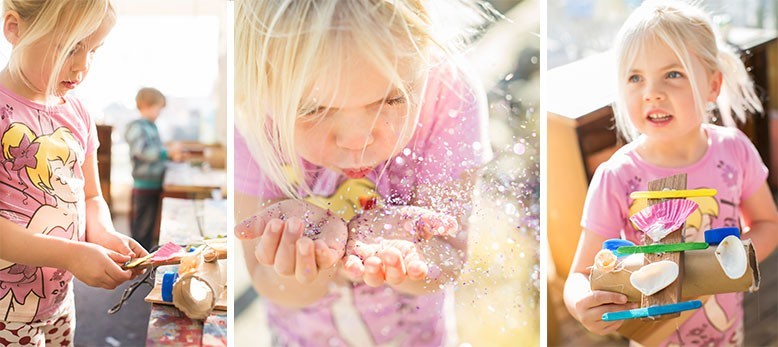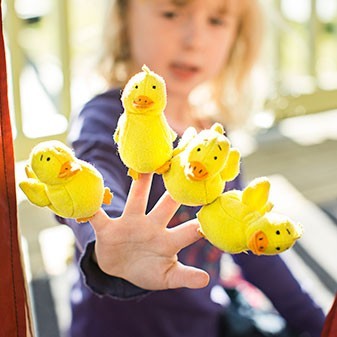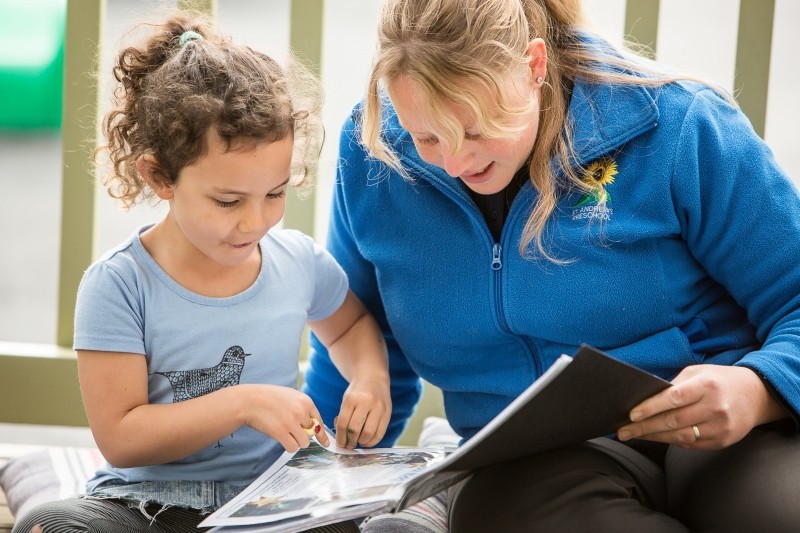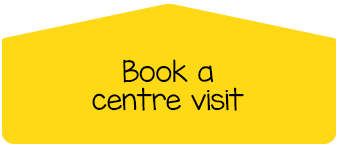ST ANDREWS PRESCHOOL
Our Learning Programme
OUR PROGRAMME IS BASED ON AN EMERGENT TE WHĀRIKI CURRICULUM.
We provide a balanced programme with a combination of routine and flexibility, teacher-directed and child-initiated play and projects. Our skilled teachers ensure learning moments are seen as fun and seamlessly interweave these through your child’s day.
Te Whāriki is the Ministry of Education early childhood education curriculum, which focuses on the holistic way in which children learn. It is founded on the following aspirations for children:
“to grow up as competent and confident learners and communicators, healthy in mind, body, and spirit, secure in their sense of belonging and in the knowledge that they make a valued contribution to society.”

WE DOCUMENT YOUR CHILD’S LEARNING IN PERSONALISED LEARNING STORIES
Learning Stories are the main form of assessment that we use to document children’s learning here at St Andrew’s Preschool.
This approach to assessment was developed from extensive research carried out by Professor Margaret Carr from Waikato University on learning narratives. Learning stories are used widely throughout early childhood centres in New Zealand and the Ministry of Education endorses this method of assessment.
The Learning Stories process is also closely linked to the New Zealand early childhood curriculum document, Te Whāriki.
As teachers we notice what children are doing and recognize the learning that is happening for the child as they do these things. While not all the learning we recognize will be documented, some of it will.
A Learning Story is a story about a child’s learning.
Learning Stories are written on a credit-based model, where the focus is on what children ‘can do’ rather than what the children ‘can’t do’. As Learning Stories are written, the strengths and interests of the child become even more evident.
There are usually three parts to a learning story.
- The actual story about the child’s learning.
- An analysis that highlights the learning that is happening for the child.
- What next? The opportunities and possibilities for the child to develop their strengths and interests further.
Learning stories can have multiple perspectives:
- The teacher’s voice
- The child’s voice
- The parent’s/whanau’s voice
When analyzing what learning is happening for the children, we consider each child’s physical, emotional, cognitive and spiritual development. We place a large focus on your child’s learning dispositions.
We are interested in noting and recording positive examples of your child:
- Taking an interest
- Being involved
- Persisting with difficulty
- Expressing an idea or a feeling
- Taking responsibility
Your child’s Learning Stories will be collated into a personalised portfolio booklet, which we encourage you to look at with your child on a regular basis. Children love sharing what they have learnt with you and your involvement and conversation about the Learning Stories deepens the learning experience for your child.

Parents are valued partners in the centre. They are kept well informed about centre provisions, are consulted during policy reviews, and are invited to share cultural knowledge and home languages.
St Andrews Preschool
Christian values and positive relationships underpin the welcoming centre environment. Children arrive eager to engage in play and connect with their friends.
St Andrews Preschool
Teachers actively encourage children to extend their learning. They ask open-ended questions that prompt children to think, negotiate and explore new ideas for play.
St Andrews Preschool
The preschool caters for a multicultural community. Teachers celebrate this diversity and encourage children to respect the languages and culture of others.
St Andrews Preschool
To all the great staff at St Andrews. Thank you for all the support and encouragement you have given Oscar over the years. It is a blessing to have you all help my children grow into the great young men they are when they start school.
Debbie
Why Choose St Andrew’s Preschool?






















